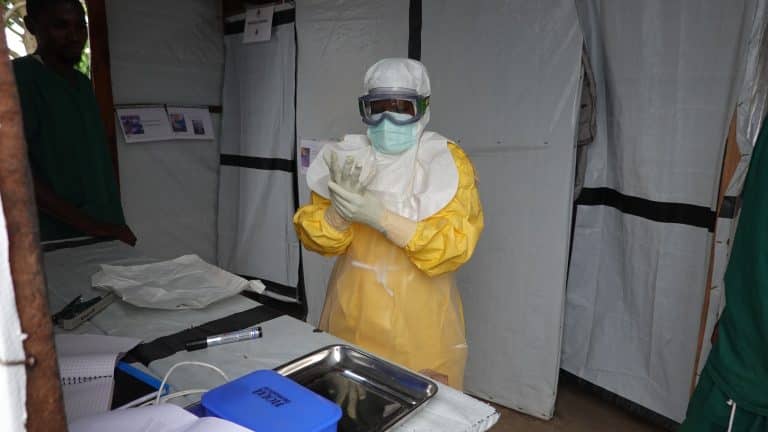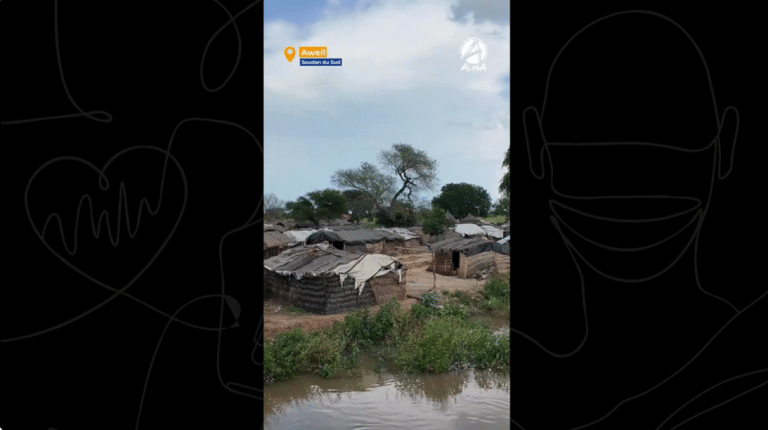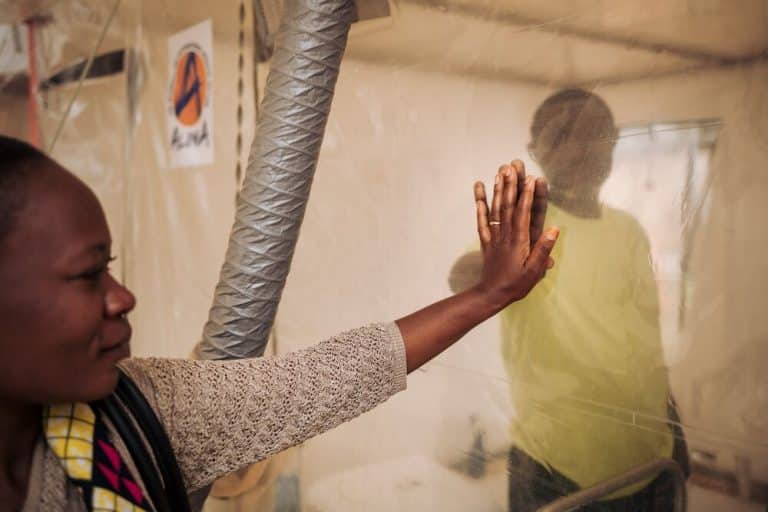Cholera
According to the World Health Organization (WHO), cholera has caused seven pandemics in the past two centuries. The most recent, which began in 1961, is still ongoing. This infectious disease remains a global public health problem, affecting thousands of people every year.
ALIMA (The Alliance for International Medical Action) responds to cholera outbreaks with rapid interventions, appropriate medical care, and prevention actions to limit the spread of the virus.
What is cholera?
Cholera is an acute intestinal infection caused by the bacterium Vibrio cholerae. While it primarily affects Africa, outbreaks also occur in other regions of the world.
Key factors driving the spread
- Limited access to clean drinking water
- Poor sanitation infrastructure
- Conflict and displacement
- Climate change
How is cholera transmitted?
- Contaminated water: drinking water contaminated by the bacteria
- Contaminated food: eating improperly washed or cooked food
- Poor hygiene: lack of regular handwashing
Essential prevention measures
- Regular handwashing
- Access to clean drinking water
- Efficient wastewater treatment
- Community awareness campaigns
- Vaccination
What are the symptoms of cholera?
In most cases, infected people have no symptoms. When symptoms appear, they range from mild to severe.
Common symptoms:
- Sudden and heavy watery diarrhea
- Frequent vomiting, aggravating dehydration
- Rapid dehydration: dry skin, extreme thirst, little urine
- Muscle cramps
- Lethargy or irritability, especially in children.
Without treatment, the disease can be fatal within hours.
Take action
Support the fight against cholera
Your contribution is essential to treat and prevent this deadly disease.
Cholera treatment and management
Cholera is easily treatable when managed quickly.
Recommended treatments
- Oral rehydration solution (ORS) and parenteral rehydration for severe cases
- Hospitalization for severe cases
- Antibiotics to reduce the duration of symptoms
- Nutritional support to strengthen the immune system
Is there a cholera vaccine?
An oral cholera vaccine is available in one or multiple doses.
Comprehensive prevention: an essential approach
- Access to safe drinking water
- Improved sanitation
- Hygiene awareness campaigns
ALIMA's commitment in the fight against cholera
Actions on the ground
ALIMA intervenes quickly as soon as epidemics appear:
- Setting up Cholera Treatment Centers (CTCs), oral rehydration stations, and water chlorination points
- Training community relays to detect cases
- Raising awareness about hygiene and prevention
- Vaccination campaigns.
Intervention examples: Niger and DRC
- 2018 – Maradi, Niger: urgent deployment of a CTC with the support of the European Commission
- 2023 – North Kivu, DRC: medical treatment, vaccination, and support for displaced populations.
With its Rapid Response Mechanism (RRM), ALIMA can mobilize emergency assistance within 72 hours.
On the ground
Related news

Three Months to Eradicate Ebola: The Power of Collective Action in Kasai
After three months of collective mobilization, the 16th Ebola outbreak in the Democratic Republic of the Congo (DRC) was declared over on November 30, 2025.

South Sudan: when the climate crisis becomes a health crisis
In Aweil, recurring floods cut off entire villages. Malaria, diarrhea, pneumonia: children are on the front lines. Since 2025, ALIMA has been deploying an emergency

Ebola in Kasai: A Race Against Time!
Since late August, a new Ebola outbreak has struck Kasai in the Democratic Republic of Congo. With 40 deaths already and more than 1,400 contacts


